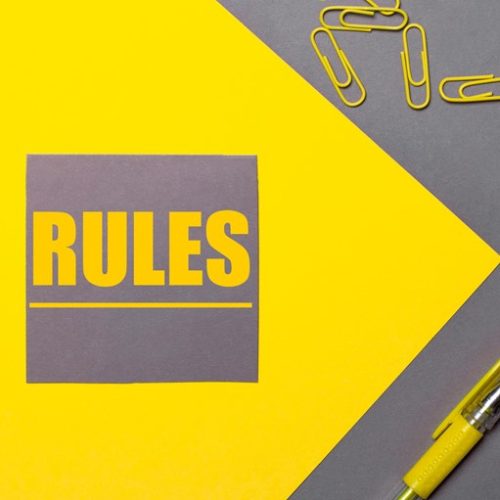

Identity verification is now rolling out for directors, PSCs, and agents, with more filing roles to be included soon under new anti-fraud rules.
Companies House is beginning to roll out mandatory identity verification. This is part of wider reforms introduced by the Economic Crime and Corporate Transparency Act that was granted Royal Assent in October 2023. This legislation strengthens Companies House’s authority to prevent the misuse of corporate structures and tackle economic crime.
A key feature of the Act is the requirement for identity checks for individuals involved in company formation, management, or ownership in the UK. Eventually, anyone incorporating a company or being appointed as a director or a person with significant control (PSC) will be legally required to complete identity verification.
Authorised Corporate Service Providers (ACSPs)
Since 18 March 2025, any ACSP that is defined as an individual or organisation conducting Anti-Money Laundering (AML) supervised activities must verify their identity before they can register as an authorised agent with Companies House.
Since 8 April 2025, ACSPs that are registered as authorised agents are permitted to carry out identity verification on behalf of their clients. This means that only those registered as authorised agents will be allowed to submit filings on behalf of other businesses.
Directors and Persons with Significant Control (PSCs)
Also, since 8 April 2025, directors and PSCs are able to verify their identity voluntarily. Over time, this step will move from optional to mandatory, forming a required part of compliance when forming or managing a company.
Individuals Filing with Companies House
At present, identity verification is not compulsory for individuals submitting filings to Companies House. However, this will also change in due course, with verification becoming a statutory obligation in the future.

Certain company changes—like a new registered address, email, or director—must be reported to Companies House promptly. Failure to update records risks penalties and non-compliance with UK company law.
These include the following:
Updating the registered office address
If you change your company’s registered office, you are required to notify Companies House. Note that the new address must remain within the same part of the UK where your company was initially registered. For instance, a company incorporated in England and Wales must maintain its registered address within those regions.
Your company’s new address will only be officially changed once Companies House has registered the update. Once this is done, they will automatically inform HMRC.
Changing the registered email address
If you need to update your company's official email address, this involves a separate process. To change a registered email address a request should be made at https://find-and-update.company-information.service.gov.uk/registered-email-address
Other changes that require notification
You should inform HMRC if there are updates to your contact information, business name, or if you appoint an accountant or tax adviser.
You must also notify Companies House within 14 days of any changes involving:
Finally, if you issue new shares, Companies House must be notified within a month.
You can report these changes using the Companies House online service or by submitting the appropriate paper forms.

New rules under the Economic Crime and Corporate Transparency Act mean identity checks will soon be required at Companies House. From directors to agents, all those running UK companies will need to verify who they are as part of tougher anti-fraud measures.
This Act enhances Companies House's powers to combat the abuse of corporate structures and address economic crime. Among its provisions was the introduction of identity verification for individuals who are setting up, running, owning, or controlling a company in the UK. Ultimately, identity verification will be a compulsory part of the incorporation process and necessary for appointing new directors and PSCs.
Authorised Corporate Service Providers (ACSPs)
Since 18 March 2025, Authorised Corporate Service Providers (ACSPs) have been required to verify their identity if they wish to register as a Companies House authorised agent. ACSPs include individuals or organisations that carry out Anti-Money Laundering (AML) supervised activities.
From 8 April 2025, ACSPs registered as authorised agents will be able to verify their clients' identities. In the future, businesses will also need to be registered as authorised agents to file documents on behalf of their clients.
Directors, Persons with Significant Control (PSCs
From 8 April 2025, individuals such as company directors and persons with significant control (PSCs) will have the option to voluntarily verify their identity. In the future, this will become a mandatory legal requirement.
People who file at Companies House
Identity verification is not yet mandatory for individuals filing at Companies House. In the future, this will change and become a legal requirement.

Unpaid debts can put a limited company at risk of a winding-up petition, potentially leading to liquidation. Creditors may act via court judgments or statutory demands, forcing companies to settle debts. Learn how this process works and the consequences for the business.
A limited company that has unpaid debts, beyond their normal agreed payment terms, can face a precarious future. The people or organisations that are owed money may be able have the company wound up (dissolved) by applying for a winding-up petition. This is a drastic measure and can lead to the company in question being liquidated. This action, by the creditors, can be a powerful motivator for the company to settle its debts before the process is completed.
The creditors can start this process by either:
If the court grants the winding-up petition, a liquidator is appointed to sell the company’s assets and pay off creditors. However, unsecured creditors are unlikely to receive full payment, depending on the company's assets.
When a company enters administration, liquidation or receivership, the appointed Insolvency Practitioner is required to post announcements in the London Gazette.

A significant amount of online information about companies is available to the public on the Companies House website. The information available through Companies House can be an important resource for anyone looking to research a company. What makes this particularly valuable is that a significant portion of the data is freely available to the public.
The range of publicly available information can be used for various purposes, including due diligence, background checks, and monitoring the financial health of companies.
Among the key details that can be accessed through Companies House are:
In addition to this, Companies House offers a convenient service where individuals and businesses can set up free email alerts. These alerts notify you whenever there are updates to a company’s details, such as a change in director or registered address.